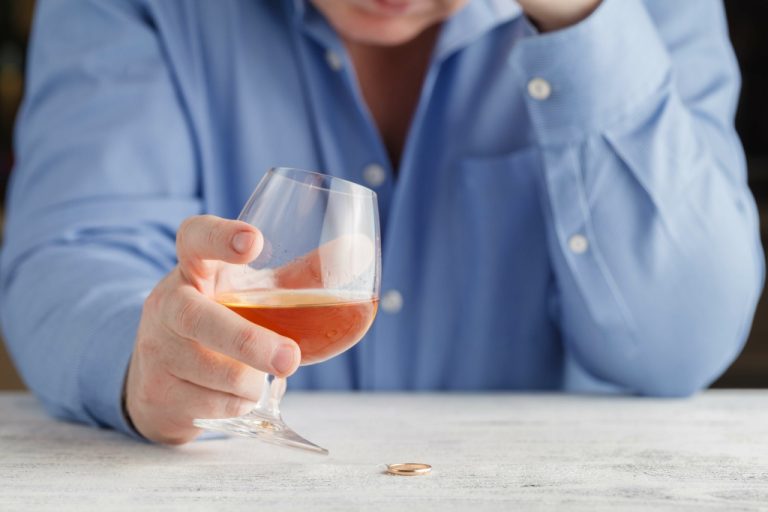Content
- Myth #4: It Doesn’t Count as Treatment if I Need Medication
- Myth #2 – Addicts/Alcoholics Have to Hit Rock Bottom
- Department of Health Care Services Program ID
- Addiction Myth #4: Every person that uses drugs is an addict.
- Myth #1: If you have an addiction, you don’t have enough willpower.
- Addiction & Recovery Myths, Debunked
With all the highly-publicized cases of celebrity drug addiction and its frequent portrayals in the media, most of us think we know quite a bit about addiction. Even those who have sought drug or alcohol treatment may be guilty of believing themselves to be more informed than they really are, falling victim to the many myths about recovery. A similar misconception is that people believe that the power to stop lies within the person who is addicted, but that they just aren’t trying hard enough or don’t want to stop. Once addiction takes hold, brain chemistry can change, making it hard to control impulses or make rational decisions.

When you give yourself time to heal in an environment that’s free from triggers, you are giving yourself a better chance of maintaining your sobriety after you return home. If an intensive outpatient program is right for you, you can seek treatment without leaving home for extended periods. When someone refers to quitting drugs or alcohol “cold turkey,” they mean they plan to quit abruptly without the help of medication or assistance from experienced medical personnel.
Myth #4: It Doesn’t Count as Treatment if I Need Medication
In most cases, people don’t seek treatment because they’re ashamed. If you show someone you aren’t judging them and encourage them to get help before they hit rock bottom, they may listen. Did a person with diabetes eat sweets every day to get the disease?
- Treatment for addiction is ever-changing, especially with studies such as this highlighting the negative effects of stigmatization on addiction recovery.
- At least one American dies every 52 minutes from drunk driving.
- In some cases, people are genetically predisposed to become addicted to something — if they begin to use alcohol or drugs, they are more likely to become addicted to them.
- As the body gets used to the chemical abuse, it craves those chemicals intensely.
- First, when your body begins to experience intense withdrawal symptoms, they may be so unbearable that you could be tempted to give up and seek out drugs or alcohol to stop them.
While making a significant life change can provide temporary relief from addiction, it’s not a permanent fix. Most of the time, people turn to drugs and alcohol as coping mechanisms. So, the stress from moving away from everyone you know, getting a new job, or going to college can be enough to cause a person to return to bad habits. While it’s true that you may encounter some people who don’t understand your decision, treatment provides you with an environment where you are surrounded by people who know what you’re going through. Besides the others in your program, many addiction programs rely on help and support from former patients who have turned their lives around and are now committed to giving back to their communities. If you enter our residential program, you can expect healthy meals, time to socialize with peers and comfortable surroundings designed to help you relax and focus on recovery.
Myth #2 – Addicts/Alcoholics Have to Hit Rock Bottom
Here are some myths about addiction recovery, debunked by the experts who help people with treatment every day. When addiction takes hold, these changes in the brain erode a person’s self-control and ability to make good decisions, while sending highly intense impulses to take drugs. These are the same circuits linked to survival, driving powerful urges no different from those driving the need to eat or drink water.
Stigma and Discrimination National Institute on Drug Abuse – National Institute on Drug Abuse
Stigma and Discrimination National Institute on Drug Abuse.
Posted: Tue, 31 May 2022 04:51:18 GMT [source]
Substance Use for Adults Explore individualized treatment programs that help adults with drug abuse, detox, and rehab. Substance Use for Young Adults Explore individualized treatment programs that help young adults with drug abuse, detox, and rehab. Addiction is a disease that is not well understood in the medical community.
Department of Health Care Services Program ID
This is simply not an accurate portrayal of someone with a substance abuse disorder. It is actually quite common for people to form cross addictions, where they simply replace their addiction with a new addiction rather than developing other coping skills. EVERY person we worked with was not only professional but caring and supportive.

One of the biggest misconceptions is that addiction to drugs or alcohol is a voluntary decision. In reality, leading authorities and medical professionals agree that addiction is a chronic disease, like heart disease or cancer. More recently, prescription opioids like pain and anxiety medications are commonly abused and lead to overdose. The people suffering from addiction to these substances are present in our daily lives. Some people believe that because alcohol is legal and many people drink, it’s not as dangerous as illegal drugs. However, alcohol is one of the most dangerous drugs available.
Addiction Myth #4: Every person that uses drugs is an addict.
These are just a few of the common misconceptions around addiction. At Safe Harbor Recovery Center in Portsmouth, Virginia, we seek to educate our guests and their loved ones about the realities of addiction, treatment, and recovery. Addiction myths about addiction and recovery is a chronic health condition, which requires ongoing vigilance and treatment. Just like other chronic conditions, a relapse can happen at any time. However, the risk of relapse can be drastically reduced by making on-going healthy choices.
- When you send confidential personal information to us on our website, a secure server software which we have licensed encrypts all information you input before it is sent to us.
- We can all probably imagine the person we’ve been led to believe is an addict.
- There are two reasons why it’s dangerous to quit cold turkey.
- But finding the right treatment program takes some research.
- They may also be homeless, facing eviction, or locked into an abusive relationship.

